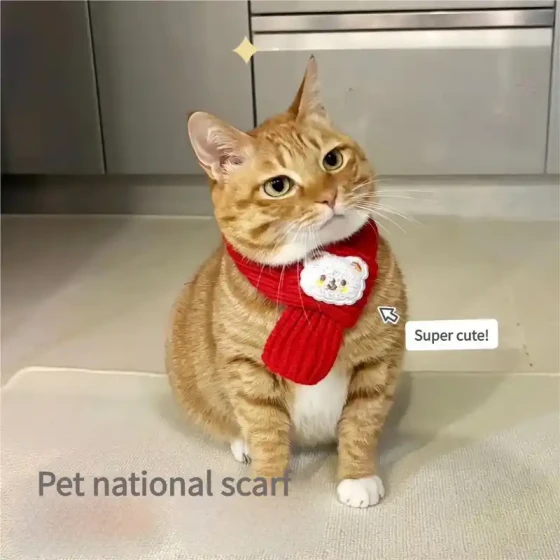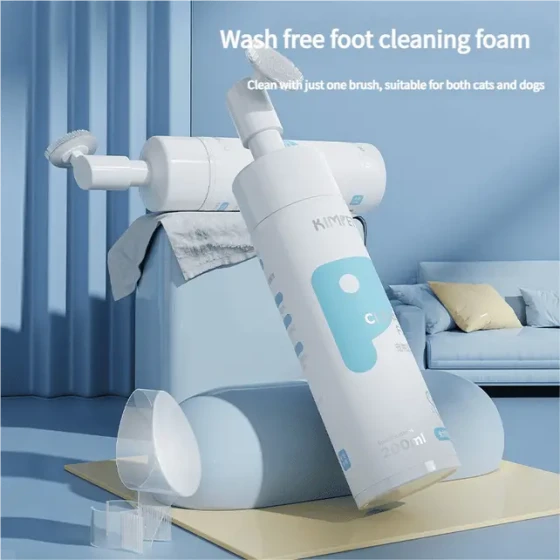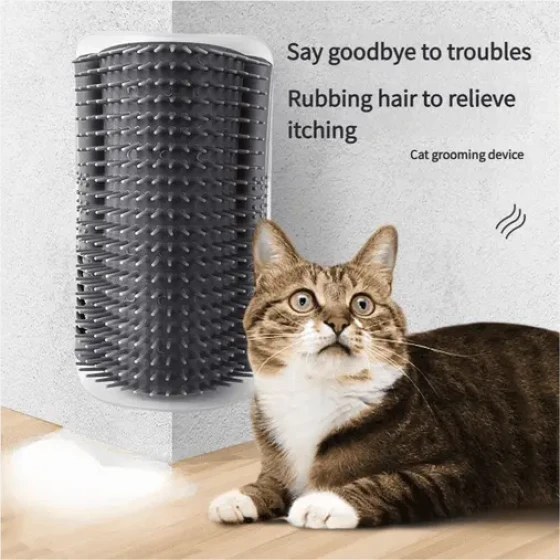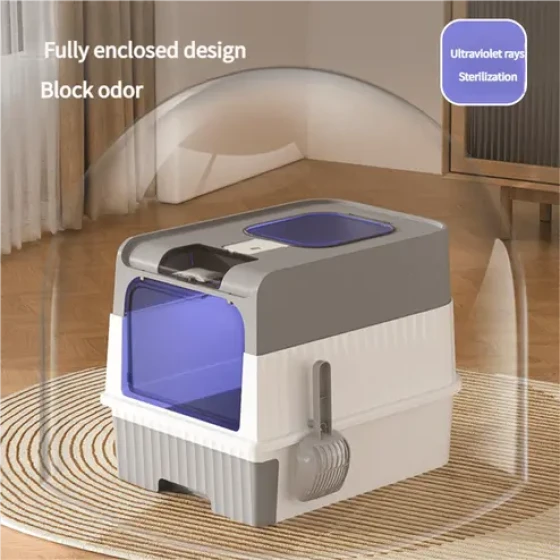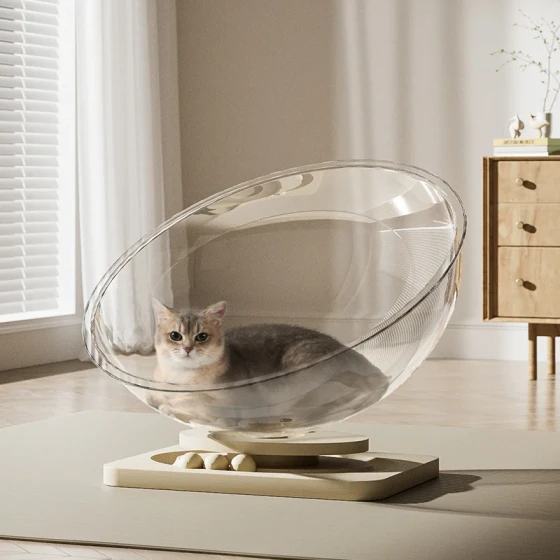Milk Brands Cats Can Drink_Safe and Suitable Dairy Products Recommended for Cats
Can cats drink milk? Which brands of milk are safer for them? This is a question many cat owners care about. Although cartoons often show cats happily drinking milk, in reality, giving ordinary milk to cats may not be the best choice and could even affect their health. Understanding which dairy products are suitable for cats and how to choose safe brands is crucial for "cat parents".
In summary, most adult cats are lactose intolerant and are not suitable for drinking regular milk. The safest and most suitable dairy products for cats are specially formulated cat milk powder or lactose-free cat milk.
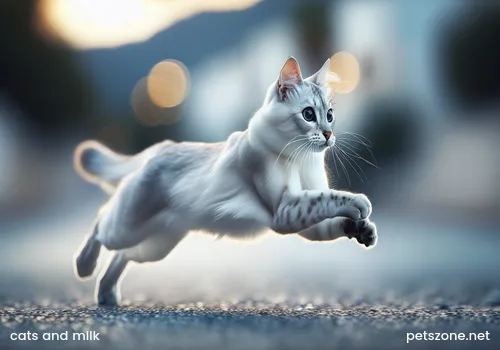
Cats and Milk: A Story of "Love and Hate"
Why do cats like the taste of milk but often cannot "enjoy" the consequences? This mainly comes from their physiology. Most mammals significantly reduce or completely lose the enzyme lactase, which breaks down lactose, after weaning. Lactose is the main sugar in milk. Without enough lactase, lactose cannot be properly digested and absorbed, directly entering the large intestine. Under the action of intestinal bacteria, undigested lactose ferments, producing gas and acidic substances that irritate the intestines, causing diarrhea, bloating, vomiting, and other digestive symptoms, known as "lactose intolerance."
Adult cats usually have only about 10% or less of the lactase level they had as kittens, making them more prone to lactose intolerance symptoms. Some cats may seem fine after drinking small amounts of milk, but symptoms may appear 8-12 hours later or be mild enough to be overlooked by owners. Long-term lactose intake, even without obvious diarrhea, may potentially harm a cat’s intestinal health.
Additionally, the nutritional content of milk differs from cats’ needs. Cats are obligate carnivores requiring a high-protein, high-fat, and low-carbohydrate diet. Compared to cat milk, regular milk usually has lower fat and protein content and higher lactose. Feeding regular milk to kittens may lead to malnutrition and developmental delays. For adult cats, the high fat and calorie content in milk can cause obesity, leading to other health issues such as arthritis and heart disease.
Of course, like humans, individual cats vary. Some cats tolerate lactose better and may not show obvious discomfort after a small amount of regular milk. Some studies show that certain Western breeds have relatively lower rates of lactose intolerance. However, from an overall health perspective, regular milk is still not recommended as a daily drink for cats.
Safe Choices: Which Dairy Products are Suitable for Cats?
If regular milk is unsuitable, what dairy products can cats safely drink?
- Cat-specific milk powder/liquid milk: This is the most recommended option. These products are specially designed for cats’ physiology and nutritional needs. They usually remove or significantly reduce lactose content and add essential nutrients for cats such as taurine (crucial for cats’ eyes, heart, and nervous system development), DHA, prebiotics, probiotics, and various vitamins and minerals. Cat milk powder, once reconstituted, closely resembles mother cat’s milk and is easy to digest and absorb. Many well-known pet brands offer cat-specific milk powder or liquid milk. When purchasing, check the ingredient list to ensure the product is lactose-free or low-lactose and contains nutrients required by cats. On the Chinese market, you can search on e-commerce platforms for "cat-specific milk powder" or "cat milk" and find products from different brands. For example, Royal Canin offers kitten milk powder (Babycat Milk), emphasizing its formulation close to mother’s milk and rich in DHA. Additionally, brands such as VETWISH, Myfoodie, LEGENDSANDY, and others provide pet goat milk powder or milk cakes, many designed for kittens or cats of all ages, claiming low allergenicity and easy absorption. It is recommended to choose well-reviewed products with clear ingredients and quality assurance.
- Lactose-free milk (for humans): In theory, milk with lactose removed can reduce lactose intolerance issues. Some cats tolerate this type better. However, some human lactose-free milk may contain added sugars or additives to improve taste, which are not healthy for cats and could cause digestive or other problems. Therefore, even when choosing lactose-free milk, select products with simple ingredients and no added sugars, and strictly control feeding amounts, using it only as an occasional treat. According to veterinarians, even lactose-free cat milk should be given in moderation because it still contains fat and calories, and excessive intake may cause obesity.
- Goat milk: Compared to cow’s milk, goat milk has smaller fat globules and protein molecules and relatively lower lactose content, so it is easier for cats to digest and absorb. Therefore, for cats intolerant to lactose in cow’s milk, goat milk may be a better choice. However, goat milk still contains lactose, so cats with severe lactose intolerance may also react negatively. Similarly, choose pure goat milk without additives and feed in moderation. Pet-specific goat milk powders are also available on the market.
- Yogurt and cheese: Most fermented yogurts and cheeses have much of their lactose broken down into lactic acid, so theoretically, they are friendlier to cats. However, many commercial yogurts and cheeses contain sugar, flavorings, or other additives unsuitable for cats. If you want to try them for your cat, choose unsweetened, additive-free plain yogurt or low-salt natural cheese and feed in small quantities while observing your cat’s reaction.
Regardless of the dairy product chosen, feed cats according to the principle of "small amounts frequently" and closely monitor their reaction. If symptoms such as diarrhea, vomiting, or bloating occur, stop feeding immediately and consult a veterinarian. Remember, clean water is always the best drinking choice for cats.
Frequently Asked Questions
- Can kittens drink regular milk? Not recommended. Although kittens have higher lactase levels than adult cats, it gradually declines after weaning. Feeding regular milk to kittens can cause lactose intolerance-related diarrhea and nutritional deficiencies leading to poor development. For hand-rearing kittens, professional kitten-specific milk powder should be chosen.
- How to tell if a cat is lactose intolerant? You can try feeding your cat a small amount of regular milk or dairy products and observe for 8-12 hours for symptoms such as diarrhea, vomiting, bloating, or abdominal rumbling (stomach gurgling). If signs appear, the cat is likely lactose intolerant.
- Besides digestive problems, can milk cause other issues in cats? Besides digestive discomfort, milk proteins can cause allergies in cats, manifesting as itchy skin, rashes, and other symptoms. Also, long-term excessive consumption of high-fat, high-calorie milk may cause obesity and a range of related health problems.
- Why do cats love milk so much? Cats are attracted to milk mainly because of its fat and protein content, especially the high-fat parts, which are very appealing to them.
Brand Recommendations (for reference only; choose based on your cat’s condition and your vet’s advice)
Considering the Chinese market situation and user search habits, here are some pet dairy brands commonly available in China with a good reputation:
- Royal Canin: Their kitten milk powder (Babycat Milk) is well-known and emphasizes a formula close to mother’s milk.
- VETWISH: Offers goat milk powder for kittens, advertised as lactose-free and easy to dissolve.
- Myfoodie: Offers milk cakes and goat milk powder products, some containing goat milk ingredients.
- LEGENDSANDY: Also has cat food milk cakes containing freeze-dried milk base or goat milk ingredients.
- Goat Milk Kadigen / Pets OWN: These are well-known foreign pet milk brands with sales channels in China, providing lactose-removed cat milk.
Important Note: The above brands are only a portion of the commonly available products on the market. When choosing a brand, "cat parents" should carefully review the ingredient list, understand the production process, check other users’ reviews, and most importantly, consider their cat’s age, health status, and adaptability. For kittens or weak cats, it is best to consult a veterinarian and choose milk powder according to their advice.
Conclusion
Although the image of cats drinking milk is classic, for their health, we should not blindly imitate it. Understanding cats’ lactose intolerance and choosing specially designed cat milk powder or lactose-free cat milk while feeding in moderation is the true way to care for your "master." Give your cat a healthy "milk bowl" so they can enjoy deliciousness and stay strong.
